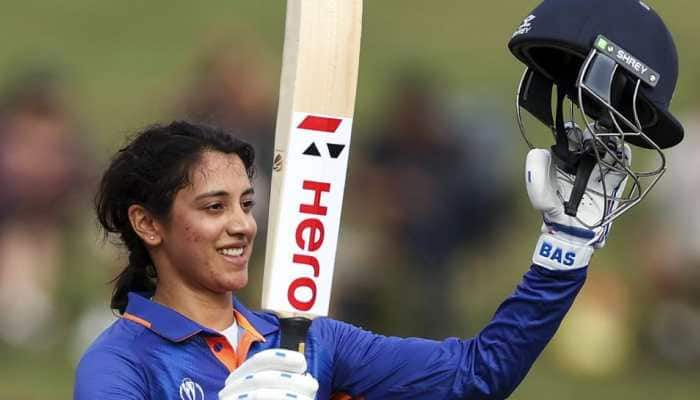Nani Palkhivala: India’s torch bearer
There was a time, when there were a few good men. For whom India always came first.
Trending Photos
)
There was a time, when there were a few good men. Who stood for all that was ethical, for whom integrity meant something. Who could take up the gauntlet even against the most commanding seats of power. For whom India always came first. <br><br> Nani Ardeshir Palkhivala was one such man. Consumed completely with his dogged determination to preserve the secularity, freedom and democracy of this country, he went to the extremities in his fight. <br><br> <b>Knight in Shining Armour</b> <br><br> In the historic Keshavnand Bharti case, it was because of Palkhivala’s tireless arguments over a period of five long months that the Supreme Court bench ruled that while Parliament could amend the Constitution, it could not tamper with its basic structure; thus securing the edifice of nation building for posterity. <br><br> However Indira Gandhi, who showed scant regard for the law of the land during Emergency days, reversed the decision. It was then that Nani Palkhivala gave us a glimpse of his towering personality. <br><br> On being peremptorily asked by Indira Gandhi in 1975 to plead her appeal before the Supreme Court, against the Allahabad High Court decision which invalidated her 1971 election to the Lok Sabha, Palkhivala simply returned her brief expressing his inability to take up the case. He risked taking on the might of Indira Gandhi, but did not compromise on his values. <br><br> Well aware of the dangers in showing such temerity, he never wavered for a moment. It was a matter of Country Vs appeasing the the Prime Minister. His choice was made. <br><br> Livid at such open show of defiance, Indira Gandhi did everything possible to make his life hell. It is to the credit of JRD Tata, who refused to sack Palkhivala either as a Director on the Tata board or as the ACC Chairman despite immense pressure from Mrs G. Lesser men would have succumbed. <br><br> <b>Gloomy Gloaming </b> <br><br> But in his twilight years, when Zee News interviewed him about the state of the nation, we found him depressed beyond measure. On being asked what was wrong with the country, he quipped, “What is wrong with it...I will like to ask what is right with it? We apply the most idiotic criteria to choose our leaders - caste, religion, region - nothing that is worth is looked at to check whether the person is worthy of public life.” <br><br> “I must admit we are not trained to be electorate. The adult franchise was introduced too early, without us being trained to be good citizens. It was a terrible mistake. I am absolutely ashamed. I never thought Indian democracy would be like this,” he bemoaned. <br><br> “We are unworthy of being citizens of this country…the man who speaks the truth is not even listened to here. Unless great men, intelligent men come into public life, I see no hope for us.” <br><br> The ray of hope, though, came to him from the Judiciary. “Judicial activism is the only good thing,’ he said but not without counter reasoning, “Ideally this should not happen. Judiciary should not take the place of the legislature or the executive, but I am glad it does.” <br><br> As a Constitutional lawyer, to him it was the greatest tome, “The Indian Constitution is the only imaginative piece of work,” he declared. <br><br> “But people don’t even know what is in our Constitution. In the Unites States, though, they have a much smaller book, they are taught the Constitution in schools. Portions of it are published in public places like railway stations. Forget knowing its contents, people in India have not even heard of it! It is a different matter that so many people don’t know how to read or write in the first place.” <br><br> About the great dangers looming over the country, this great advocate of equality felt “casteism is our greatest curse”. He minced no words in holding VP Singh responsible for dividing the country on caste lines. <br><br> But if there was that one person who was permanently consigned to his bad books, it was undoubtedly Indira Gandhi. “She did more damage to the country than anyone else. I am amazed at the liberties she took. Had she had her way, she would have destroyed the liberty that we have, but for the fight of some of us,” he said without the slightest ego. <br><br> <b>A Lost Cause</b> <br><br> Nani Palkhivala felt the nation had reached a cul-de-sac and was struggling to find a way. <br><br> On what could be the possible solution out, he suggested the unthinkable, the unspeakable- a limited form of dictatorship. For a man who fought tooth and nail for freedom and fundamental rights, Palkhivala decried that, “Indians mistake freedom for license. They think they have a license to do what they like just because they are citizens of a free country.” <br><br> He then turned to Singapore for example. Perhaps our people do, after all, need some shepherding, he grudgingly admitted. “We are waiting for a person like Lee Kuan Yew.” <br><br> Well aware of the import of what he was alluding to, he hurried to add, “I speak with a full sense of responsibility. We have reached that stage of degradation where we need more discipline and less of freedom. How can we just get up and declare a bandh. In Europe such freedom in not known. Only in India people feel they have a right to do what they like.” <br><br> On nationhood, something so close to his heart, he demystified the reason for our regional fixations. “We have been a loose knit of regions, never once had we been one nation. We have no notion of what it is to be an Indian; we are not even aware what our identity is. We haven’t told the people that we are one country.” <br><br> “I don’t know what sins I have done to be born in this country, to see all this. People of this country are basically good left to themselves. They are large hearted people. We have a culture that can make a man a fine human being…” <br><br> For India per se there would always be sweet words, “No other country has such a variety of languages, with different roots. Europe has 5-6 languages, but they have common roots in Greek or Latin. Our diversity is a great contribution to civilization.” <br><br> “Have you heard of such a great country? Where there have been great sages like Yajnavalika. Have you heard of any country where kings have left their kingdoms in search of truth? <br><br> “We are a tremendously great country. But I don’t recognize this to be the same country,” he repined as a man vanquished. <br><br> After this his voice evanesced into a quiver. Tears welled in his eyes. And then, he just broke down. <br><br> When he continued, he related with a choking throat, the indispensable role of his parents. “I have been lucky in my parents. My father taught me the right thing to do, gave me the right values.” <br><br> “It is so important to give children the right bringing up and a good education. Because this decides what the child would turn out to be when he grows up.” At that point the crew left him soaked in his thoughts. <br><br> <b>Our Inspiration </b> <br><br> <IMG SRC="/image/nani_palkiivala.jpg" vspace=4 hspace=4 border=0 align="left"><br> My Editor, who had conducted the interview, asked me to make something “marvelous” out of it. After all, the ingredients were all in place. I scanned through the interview to see how we needed to present it. <br><br> Nani Palkhivala was my hero. One of my idols in my growing up years; and will remain so till the end of my days. This man was now crumbling before my eyes. <br><br> When our icons crash, when they seem so vulnerable, so human - like any amongst us, no words can express the pathos of the moment- of utter despondency and of unfathomable darkness. <br><br> His gargantuan personality seemed crippled by hopelessness. The man, whose courage had humbled despotism, was now broken in spirit. <br><br> Everything he stood for seemed consigned to flames, turned to ashes. He looked like an emperor who had just lost a battle, seen the work of his lifetime defeated, and ground to earth. <br><br> Somberly, I began to stitch together pieces of the programme together. Palkhivala’s staff was both polite and extremely helpful in putting together the documentary. They threw open their archives for my access. I received old pictures of happier times, of daunting days, of momentous moments, of, of…. <br><br> I also heard some of the recordings of his most spectacular speeches. I watched stadiums jam packed by corporate honchos, bureaucrats, socialites and thousands and thousands of common men (some delicately balancing on tree branches or craning over from terraces because of lack of space) to hear him unravel the mathematics of the Union Budget, as part of an annual ritual. The magic was the ease with which he could convert extremely convoluted jargon into elementary lingo, giving alongside his own incisive insights. So each year after the Budget presentation in Parliament, the Finance Minister would await the verdict from Mumbai with great trepidation. <br><br> After the documentary unfolded, we received a handwritten note from Mr Palkhivala expressing his heartfelt thanks for our effort. Such was his graciousness. <br><br> My Editor was overjoyed by the response the programme received overall. The interview got wide coverage in media and became a big TRP grosser. Compliments came thick and fast about the stirring story that we had woven. <br><br> Despite so much commendation, my spirits would not lift. That night I learnt a very valuable lesson– that some successes in life are just not worth it. <br><br> A devoted teacher, a convincing author, an ace economist, a corporate chairman, but above all a brilliant lawyer and one of the greatest champions of constitutional rights, Palkhivala was all this and much more rolled into one. Yet the man remained humble and courteous to all, including the lowest strata. He was a rare breed who, though an ocean of sapience, carried their erudition lightly. His philanthropy was legendary, yet wrapped in thick of layers of secrecy. <br><br> This great man had raised the torch for us when our country was fighting the shadows. Today when India is taking huge strides in economic development, attaining literacy and its people are increasingly putting development on the agenda for voting, would his agony have eased a little? <br><br> On the converse, when we sometimes get lost in narrow alleys of caste, creed and religion, I wonder does it not then become binding on all of us to pull back and stay on course to become a good citizenry. <br><br> If not just for ourselves, then for the sake of some such good men… <br><br> <i>(January 16 is the 89th birth anniversary of Nani Palkhivala)</i>
Stay informed on all the latest news, real-time breaking news updates, and follow all the important headlines in india news and world News on Zee News.
Live Tv







)
)
)
)
)
)
)
)
)
)
